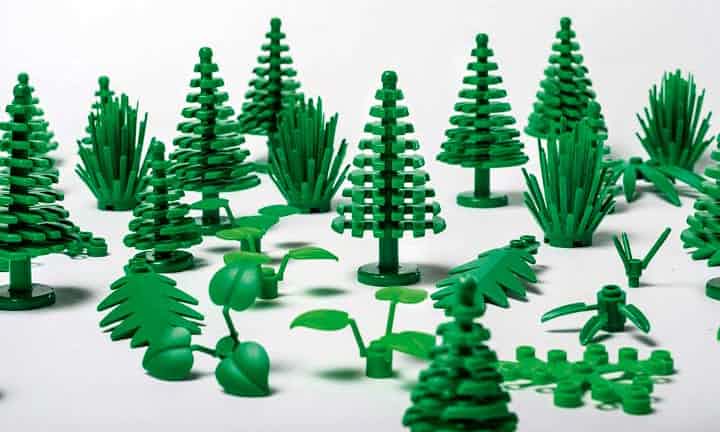First sustainable Lego pieces to go on sale
The range of botanical elements are made entirely from sugarcane based plastic

A free daily email with the biggest news stories of the day – and the best features from TheWeek.com
You are now subscribed
Your newsletter sign-up was successful
The first sustainable Lego pieces will go on sale this year.
The Danish toymaker said production had started on a range of Lego botanical elements or pieces such as leaves, bushes and trees, made entirely from plant-based plastic.
"We are proud that the first Lego elements made from sustainably-sourced plastic are in production and will be in Lego boxes this year," Tim Brooks, the Lego Group's vice president for environmental responsibility, said in a statement.
The Week
Escape your echo chamber. Get the facts behind the news, plus analysis from multiple perspectives.

Sign up for The Week's Free Newsletters
From our morning news briefing to a weekly Good News Newsletter, get the best of The Week delivered directly to your inbox.
From our morning news briefing to a weekly Good News Newsletter, get the best of The Week delivered directly to your inbox.
“This is a great first step in our ambitious commitment of making all Lego bricks using sustainable materials.”
Lego said that despite being based on sugarcane, quality would be maintained. “Children and parents will not notice any difference in the quality or appearance of the new elements, because plant-based polyethylene has the same properties as conventional polyethylene,” Brooks said.
The move “is part of Lego’s commitment to use more sustainable materials in its core products - including its eponymous bricks - and packaging by 2030,” says The Guardian.
However the polyethylene elements “will amount to only 1-2% of the total amount of plastic elements produced by the family-owned toymaker, one of the world’s most popular brands”.
A free daily email with the biggest news stories of the day – and the best features from TheWeek.com
The move “comes after reports that Lego pieces are regularly washing up on beaches along the South coast from Cornwall to Brighton, spoiling the scenery,” says the Daily Telegraph.
“It is thought that the phenomenon is due to nearly 4.8 million Lego toy parts falling overboard from a container ship in a storm off Land's End in 1997.”
-
 5 calamitous cartoons about the Washington Post layoffs
5 calamitous cartoons about the Washington Post layoffsCartoons Artists take on a new chapter in journalism, democracy in darkness, and more
-
 Political cartoons for February 14
Political cartoons for February 14Cartoons Saturday's political cartoons include a Valentine's grift, Hillary on the hook, and more
-
 Tourangelle-style pork with prunes recipe
Tourangelle-style pork with prunes recipeThe Week Recommends This traditional, rustic dish is a French classic
-
 Epstein files topple law CEO, roil UK government
Epstein files topple law CEO, roil UK governmentSpeed Read Peter Mandelson, Britain’s former ambassador to the US, is caught up in the scandal
-
 Iran and US prepare to meet after skirmishes
Iran and US prepare to meet after skirmishesSpeed Read The incident comes amid heightened tensions in the Middle East
-
 Israel retrieves final hostage’s body from Gaza
Israel retrieves final hostage’s body from GazaSpeed Read The 24-year-old police officer was killed during the initial Hamas attack
-
 China’s Xi targets top general in growing purge
China’s Xi targets top general in growing purgeSpeed Read Zhang Youxia is being investigated over ‘grave violations’ of the law
-
 Panama and Canada are negotiating over a crucial copper mine
Panama and Canada are negotiating over a crucial copper mineIn the Spotlight Panama is set to make a final decision on the mine this summer
-
 Why Greenland’s natural resources are nearly impossible to mine
Why Greenland’s natural resources are nearly impossible to mineThe Explainer The country’s natural landscape makes the task extremely difficult
-
 Iran cuts internet as protests escalate
Iran cuts internet as protests escalateSpeed Reada Government buildings across the country have been set on fire
-
 US nabs ‘shadow’ tanker claimed by Russia
US nabs ‘shadow’ tanker claimed by RussiaSpeed Read The ship was one of two vessels seized by the US military